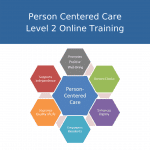Description
Duty of Candour Training Course
The duty of candour is about being open and honest in healthcare when mistakes occur. It’s a professional responsibility to be truthful with patients during difficult situations. Following the duty of candour promotes transparency and trust between healthcare professionals and patients. Our online Duty of Candour training course provides essential knowledge to your staff.
Learners will understand the duty of candour, professional regulators, application process, dos and don’ts, and the role of the CQC.
After completing the course, learners will receive a printable and downloadable Duty of Candour certificate to demonstrate their understanding and compliance.
- Developed by professionals
- Accredited by The CPD Accreditation Group
- 100% online, learn at your own time and pace
- Translates into over 100 different languages
- Instant certificate downloaded
Course Outline:
This legal duty requires specific actions when harm occurs to individuals under your care. Our Duty of Candour training equips your staff with the necessary knowledge and skills.
The goal of this online Duty of Candour course is to enhance your understanding of the Duty of Candour, its purpose, and the relevant laws associated with it.
The main points covered are:
- Define Duty of Candour
- State function of the duty of candour
- Identify professional regulators involved
- Explain the process of the application of Duty of Candour
- Understand the Dos and Don’ts’ of the Duty of Candour
- Recognise the role of the CQC in the Duty of Candour
1. Define Duty of Candour:
Learn and understand the concept and definition of Duty of Candour, which refers to the obligation to be open and honest when things go wrong in health and social care services.
2. State function of the duty of candour:
Explore the purpose and function of the Duty of Candour, which involves promoting transparency, accountability, and trust between healthcare professionals and patients.
3. Identify professional regulators involved:
Discover the various professional regulators who are responsible for enforcing and overseeing the Duty of Candour, ensuring compliance and adherence to the required standards.
4. Explain the process of the application of Duty of Candour:
Gain insight into the step-by-step process of applying the Duty of Candour, including the legal requirements and documentation involved.
5. Understand the Dos and Don’ts of the Duty of Candour:
Learn the best practices and ethical guidelines associated with the Duty of Candour, including what actions to take and what to avoid in order to fulfill the duty effectively.
6. Recognise the role of the CQC in the Duty of Candour:
Explore the specific role of the Care Quality Commission (CQC) in relation to the Duty of Candour, including their regulatory oversight and monitoring of compliance within healthcare organizations.
Learning Outcome:
Upon completing this Duty of Candour online training course, learners will acquire knowledge and understanding of the following:
- Definitions: Gain an understanding of the definition and meaning of duty of candour.
- Functions: Recognize the function and purpose of the duty of candour.
- Professional Regulators: Identify the professional regulators involved in the duty of candour.
- Application Process: Understand the process of applying the Duty of Candour.
- Dos and Don’ts: Comprehend the dos and don’ts of the duty of candour.
- CQC’s Role: Recognize the role of the Care Quality Commission (CQC) in the duty of candour.
Frequently Asked Questions:
What is duty of candour?
Duty of Candour refers to the legal and ethical obligation of healthcare providers to be open, honest, and transparent with patients when things go wrong in their care.
It emphasizes the importance of promptly informing patients about any incidents or harm caused during their treatment, offering a sincere apology, and providing appropriate support.
The Duty of Candour promotes trust, accountability, and effective communication between healthcare professionals and patients. It also encourages a culture of learning, improvement, and patient safety within healthcare settings.
Compliance with the Duty of Candour is essential for maintaining ethical standards, patient-centered care, and building a positive healthcare relationship based on honesty and respect.
How does duty of care relate to duty of candour?
Duty of care and duty of candour are two important principles in the healthcare and social care sectors. Duty of care is the legal obligation of healthcare professionals to provide a reasonable standard of care to their patients or clients. This duty ensures the safety and well-being of individuals receiving healthcare services.
Duty of candour represents the ethical and legal obligation to be open, honest, and transparent with patients or clients when issues arise in their care. This includes situations where harm or adverse outcomes occur as a result.
While duty of care focuses on providing quality care, duty of candour emphasizes the importance of communication and maintaining trust between healthcare professionals and patients or clients. Both principles work together to ensure the best interests and welfare of individuals receiving care.
Is duty of candour a legal requirement?
Yes, duty of candour is a legal requirement in many healthcare systems. Duty of candour is enshrined in legislation and regulatory frameworks in various countries, including the United Kingdom. Its purpose is to promote transparency and accountability in healthcare practices.
These laws require healthcare professionals and organizations to be open and honest with patients or clients in cases of harm or adverse outcomes resulting from incidents or errors.
The legal requirement includes:
- informing the affected individuals about what happened,
- providing an apology if appropriate, and
- offering support and further investigation if necessary.
Failure to comply with the duty of candour can lead to disciplinary actions and potential legal consequences.





